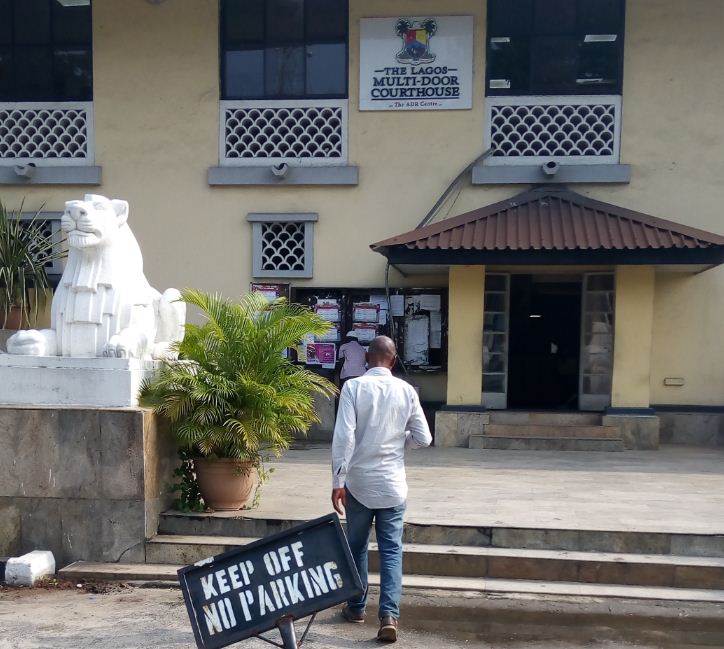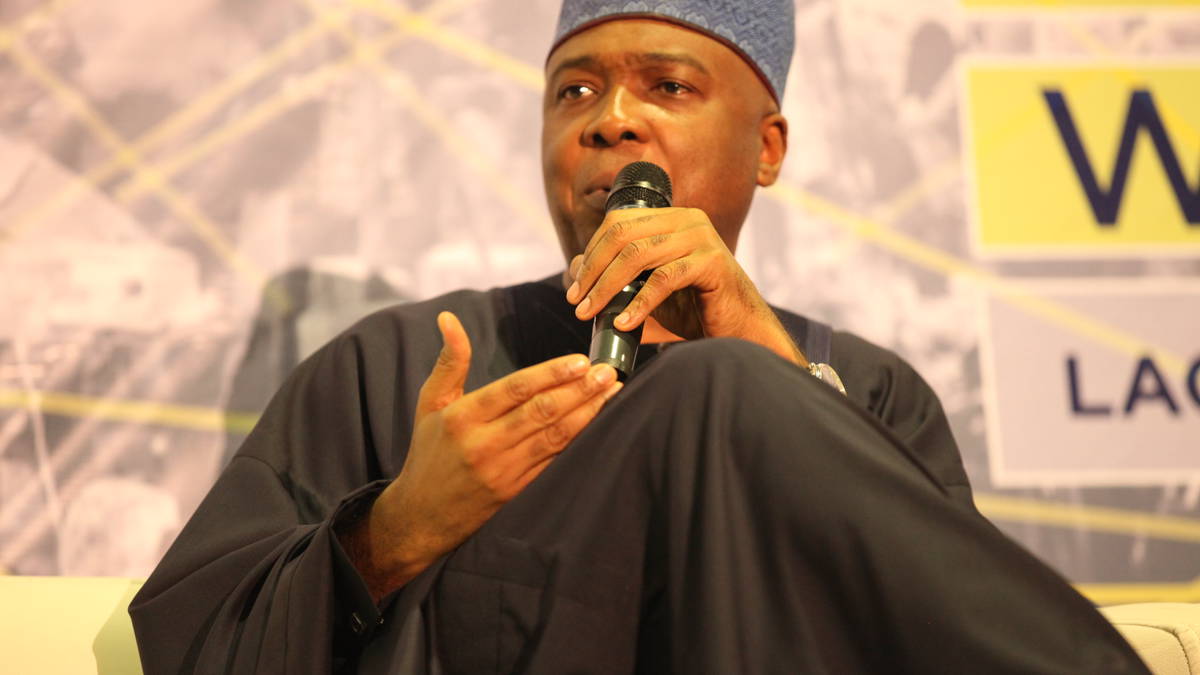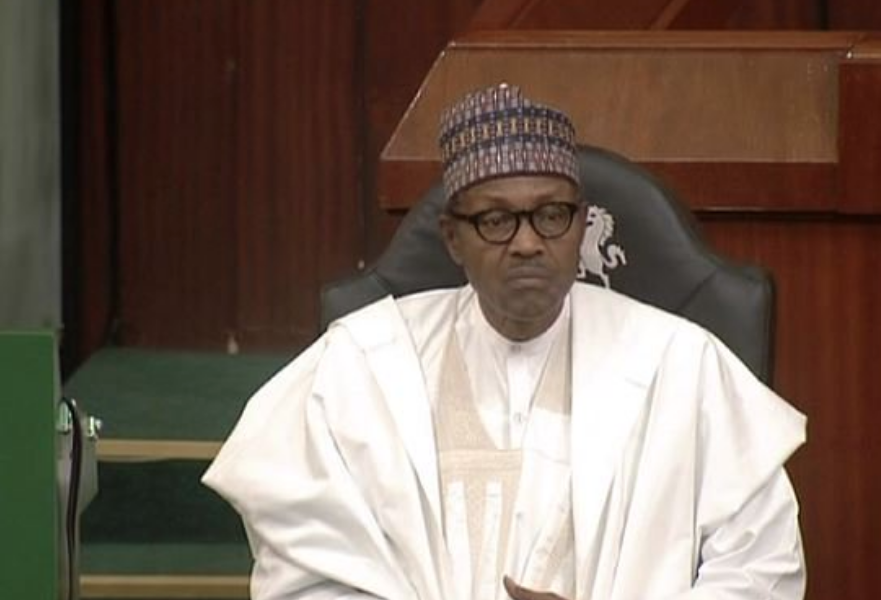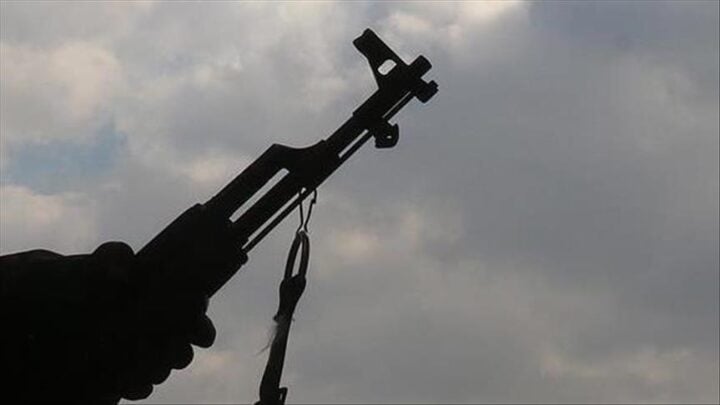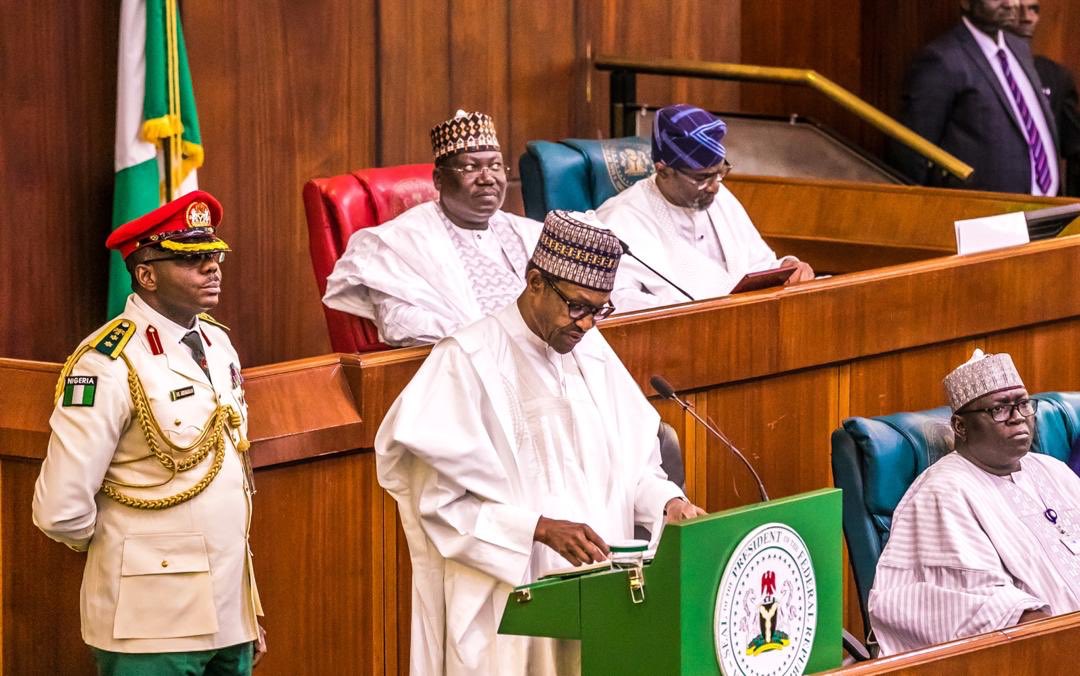BY GABRIEL OGUNJOBI
Still reluctant to ever knock the doors of any lawyer or the court, Olanrewaju Balogun’s desire was a reign of peace at Lafiaji, the town in in Eti-Osa local government area of Lagos state where he was installed as “baale”, a local chief. However, Lafiaji started experiencing intermittent crisis in 2006 when land grabbers better known as “Omo Onile” pervaded the community.
The once-peaceful town became haunted by “area boys” who paraded themselves as tax collectors.
“They often possess diabolic items and enjoy the backing of some powerful elements. Because of this, they are usually feared, using that as an avenue to extort legal buyers of lands before any construction is made,” Balogun said during an interview.
Advertisement
“They turned themselves as land-owners whereas they were mere strangers. When these bad elements came to claim our land, which I own a plot too, it took our royal father one year to weigh in before he could resolve the dispute amicably.”
Lafiaji is one of the 13 towns under the traditional jurisdiction of Tijani Akinloye, the Ojomu of Ajiranland. Having witnessed first-hand the effectiveness of traditional institution at settling disputes, Balogun, now in his late 60s, does not see litigation as an option. For him, going to the courts is a waste of time, resources and fuels enmity that might take years to take off people’s mind.
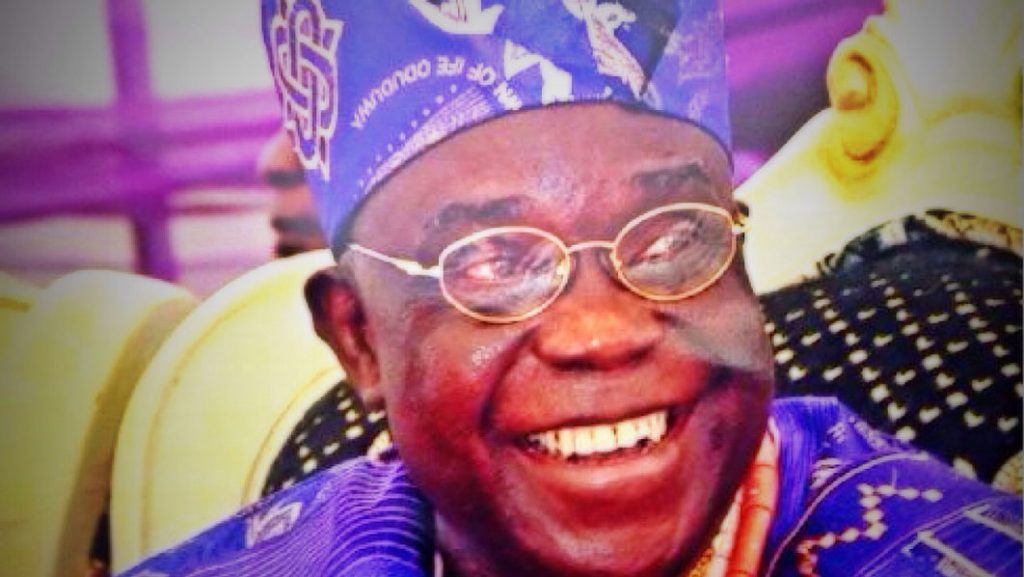
Advertisement
The monarchNot only Lafiaji embraces the alternative dispute resolution in Lagos, Nigeria’s most populated state. Ajiran, another community in Eti- Osa local government, has been using the same method in civil and criminal issues since the late 80s.
The community, which hosts the headquarters of one of Nigeria’s largest oil company, Chevron Nigeria Limited, has been able to keep their internal land dispute out of court amid activities of land grabbers and the prevalent extortion of some indigenes. Not only on land cases. The traditional institution in Ajiran also mediates in other criminal cases. For Isiaka Giwa, Oshorun of Ajiranland, prevention comes before settlement.
“There are taboos that guide the conduct of both old and young. They are inherent in our culture and cannot be defiled. For example, you dare not parade a masquerade here. No matter how combative anyone gets, such cannot break a bottle or stab anyone with an object… not even a stranger. There are punishments for deviants,” he said.
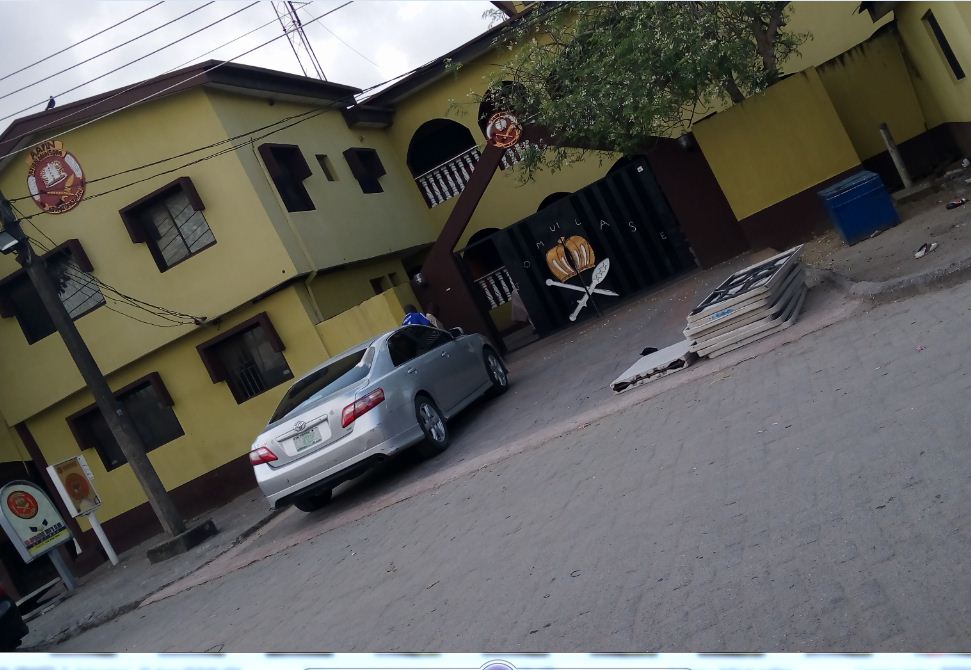
For decades now, this has served as a tool for the community of over 200,000 residents to tame idle indigenes – mostly youths – that scout the street trying to nab any vulnerable land buyer for extortion.
Advertisement
Nurudeen Odofin, an indigene of Ajiran, often regarded with his nickname ‘Orobo’, gave an insight into the practice of adjudicating in land dispute by their traditional leaders.
While petty issues like stealing, fighting are prevailed upon by the appointed chiefs in different ranks, Yekini Bakare, Balogun of Ajiranland, said only the king has the autonomy to resolve controversy on land issues.
According to him, the chiefs preside over civil cases while the king handles ones with criminal intonation.
“You can’t just see our king cheaply. If it’s on minor cases, it will likely be determined by the chiefs. But for cases like land disputes, he is the one fully in charge,” Odofin said.
Advertisement
“The chiefs will fix a time the parties involved can see the king, where they can all tell their stories. Sometimes, the king seeks the advice of the council of chiefs during resolution but he is still the one that makes the order.
“Depending on the weight of the land dispute, he may even decree payment of fine or even compensate any of the aggrieved parties. He is the king and whatever he says is final.”
Advertisement
Also, as part of prevention, the king ensured that he’s the only custodian of legal documents for the sales of any portion of land.
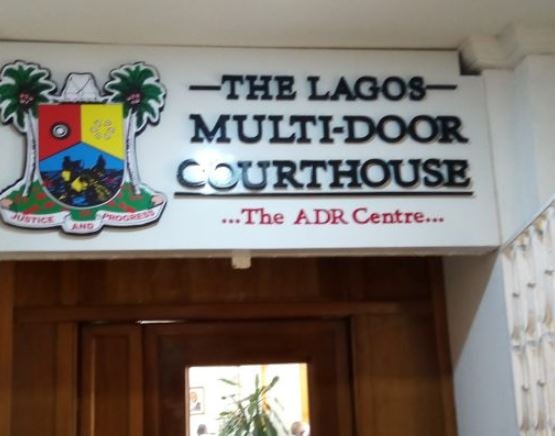
He assumed the power after the community got a victory on land use in the 1989 court verdict.
Advertisement
As against the 1978 Land Use Act, which nationalised all lands and overrode customary land rights, the monarch said his community was able to reverse the law on Ajiran in spite of the legal recognition and land protection it already obtained at the Supreme Court of Nigeria in 1963.
How does the community tame the excesses of youth who may have erring tendencies?
Advertisement
Isiaka Giwa said the exuberance of youth is usually contained because of their sacred laws.
“Because of the diversity of people in this place, we can’t do without internal crises but one thing we’re clear about is the reference we give to our culture. Our taboos are very, very firm, which places some sort of fear on the youths against unruly behaviors,” Giwa said.
He added that the royal family has a team of lawyers that facilitate the authentication of the royal family’s mediation at the Lagos high court, albeit enforcing the decision reached, in accordance with the law.
WHY OUT-OF-COURT SETTLEMENT IS BETTER
“They still go to the court to submit to the orders of those who are not as old as we are,” Akinloye said in response to a question on why his community is committed to out-of-court settlement on internal crises like land disputes and misdemeanor instead of court’s litigation.
The monarch added that the court would be less congested if the people can exercise patience in their cohabitation and accord absolute respect to traditional rulers.
“It’s the loss of respect for elders that stirs conflicts in society. We can live peacefully if we are contented and self-understanding,” the king said.
“Concerning land disputes, what we do is to sit them down and tell histories. Who was the first to inhabit the land? who farms first and all that?
“If they respect us enough, they will comply with our judgment. It’s after compliance that we can offer to console the other party with some gifts.”
Evans Ufeli, a constitutional lawyer and human rights activist, acknowledged the indigenous style of alternative dispute resolution (ADR) especially on land ownership because the traditional figures are conversant their historical background.
“There really isn’t any technicality in mediation. The rule of mediation is party-driven. It’s about finding common ground between aggrieved parties; a matter of logic and reasoning. Disputes were usually settled by these traditional rulers before the advent of British law court. So, it is only wise to allow them to continue to resolve internal disputes because they are respected and also know more about the history of their jurisdictions,” the lawyer said.
“Unlike litigation, mediation promotes social integration as well as peaceful co-existence, which is the foundation upon which any economy thrives. ADR is a win-win, non-adversarial mechanism.
LAGOS MULTI-DOOR COURTHOUSE
Adeyinka Aroyewun, director of Lagos Multi-door Courthouse (LMDC), the first court-connected Alternative Dispute Resolution (ADR) centre in Africa, said mediation in civil cases sometimes still involves the court of law.
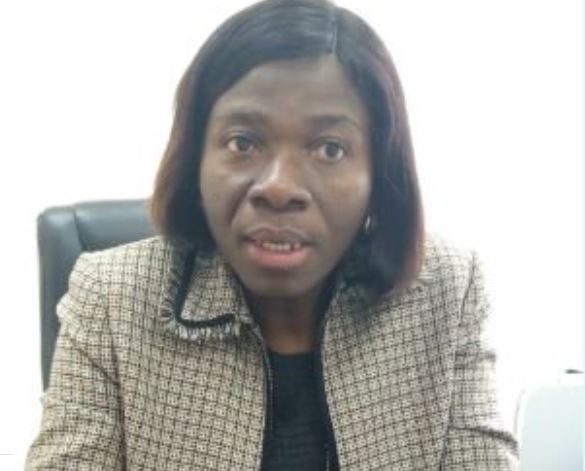
She explained that the power for the declaration of a title is vested in the court, determined by the provided evidence of the complainant or defendant.
“Some land cases are amenable to mediation while some are not”, she said. “If the dispute involves the declaration of title, then it is only a court of law that can prevail on such based on the evidence and witnesses before it.
“Instead of litigation, a judge may consider a case to be better handled outside court. Either before or during trials, such cases could be referred to the Multi-door Courthouse. Such cases are called ‘court-referred’
“In other cases, LMDC gets its cases when any of the warring parties willingly decides to seek out-of-court settlement even before filing the case before the court. Such cases are called ‘walk-in’.”
According to statistics provided by the Lagos Multi-Door Courthouse, 3,223 cases were recorded at the ADR centre in 2018 – 1,068 were settled while 1,779 were mediated, representing 60.03 percent of settlement rate on mediated cases.
In the same year, over N2, 438,741,450 billion monetary claims were recovered through the Lagos Settlement Week (LSW), which represents 50 percent of the resolved matters, N4, 502,976, 474 billion claims, representing 48 percent of the resolved matters in 2017 and N24,387,059,759 billion claims, representing 52 percent of the resolved matters in 2018.
An overall amount of N31, 370, 777, 688 billion claims were recovered between 2016 and 2018. These claims include savings on legal fees, court resources, sheer inconveniences associated with servicing litigation among others.
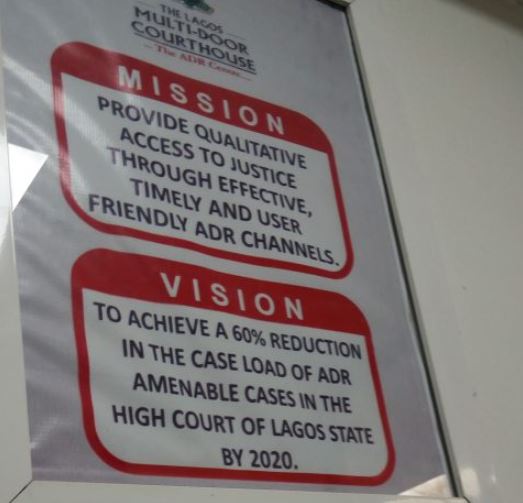
“Court-referred cases are pro-bono while walk-in cases cost N10, 000 as administrative charges. Depending on the case’s claim, a minimal percentage is charged for mediation and it is made at considerable cost for indigents,” Aroyewun said.
LMDC also delivers justice on criminal cases such as stealing but corporal cases like murder, armed robbery cannot be mediated. “Or, what reconciliation or mediation do you want to have with someone whose child was killed?” the director asked rhetorically.
THE COMMENT OF LAWYERS
To surmount the challenges of ineffective or incomplete investigations and delays in criminal trials, Opeyemi Oke, former chief judge of Lagos state, launched the practice directions for administration of criminal justice law (ACJL) and the restorative justice in May 2019.
At the launch, Oke was quoted saying: “These practice directions are being launched today in keeping with my vision to ensure speedy resolution of our criminal cases and the entrenchment of restorative justice in the administration of justice in Lagos state to create more avenues for access to justice and a holistic approach to criminal justice administration.”
The launch was sequel to the passage of the ACJL in 2007, which got amended in 2011.
With the glaring reality of pile up cases with Nigerian judges, ADR appears to be an option in civil and sometimes criminal cases. In enhancing justice delivery in Nigeria, Ademola Owolabi, a Lagos-based lawyer, said the Lagos high court has now recognised the ADR as a precursor for a court settlement.
“As ministers for the temple of justice, judges are now convinced that some cases are even better resolved out-of-court rather than waste expensive time at the law court over unnecessary delays,” Owolabi said.
“What is done cannot be undone. Finding middle ground to protect the interests of the aggrieved parties usually comes based on the discretion of the presiding judge. This may be mediation and reconciliation for family matters, arbitration in the case of an industrial dispute.
“Discharging justice on contracts and business is knowledge-driven that requires an expert to satisfactorily settle related cases. A judge may not be knowledgeable in such sectors like construction, so seeking an expert arbitrator in the field is a very lovely option.”
The lawyer also said in some instances, retributive justice for victims has a huge tendency for solace, which principally exists at the ADR level.
“Crimes like the destruction of public properties, rape and murder are state-inclined. It’s important for the court to punish offenders so that impunity is not made to continue but in some other instances, consideration of retribution is given to the victim of a case. The offender can be compelled to seek forgiveness and pay some damage costs,” Owolabi added.
Oladotun Hassan, assistant secretary of the Nigerian Bar Association (NBA) Epe branch, on the other hand, advocated for the establishment of ADR centres in various institutions in Nigeria.
This, he said, will curb the hasty criminalisation of minor offenses coming from police stations across the country.
“ADR has carved a niche for itself in the administration of the criminal justice system in Lagos state. The creation of more mediation centres across the state has helped in resolving the multiplicity of criminal cases that used to over-bloat the number of prison inmates,” Hassan said.
“It will be more effective if we can extend this to key institutions in Nigeria like traditional palaces for civil cases resolution and police to handle criminal cases.”
To achieve this, Hassan, who doubles as the chairman of NBA Lekki forum, said his forum recently proposed some legal frameworks to Kazeem Alogba, chief judge of Lagos.
“As the Nigerian Prisons Services reviewed its laws to accommodate correctional measures for inmates, it’s also pertinent to review the Nigerian Police Acts and infuse ADR section in their divisional police commands. This will create a balance in Nigerian criminal justice,” he said.
“There is also a need to domesticate the ADR across the traditional level by deploying judicial officers to our palaces for the resolution of their civil case.”
This report was supported by The Premium Times Centre for Investigative Journalism
Add a comment
